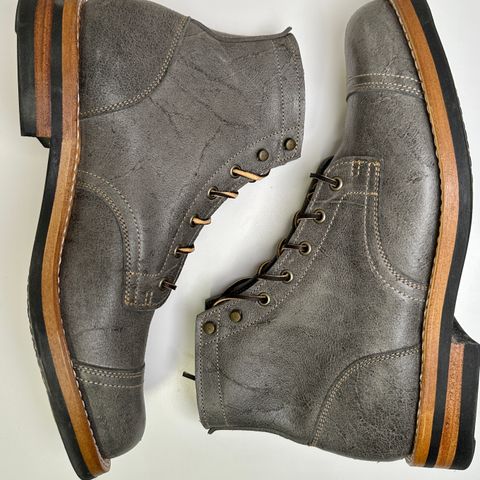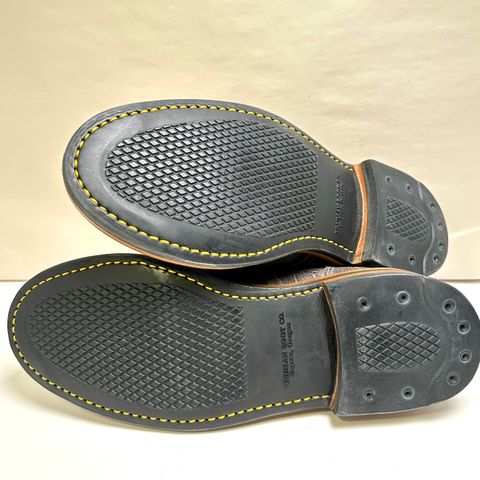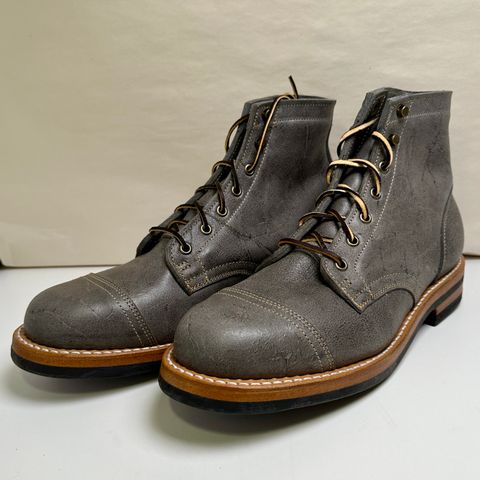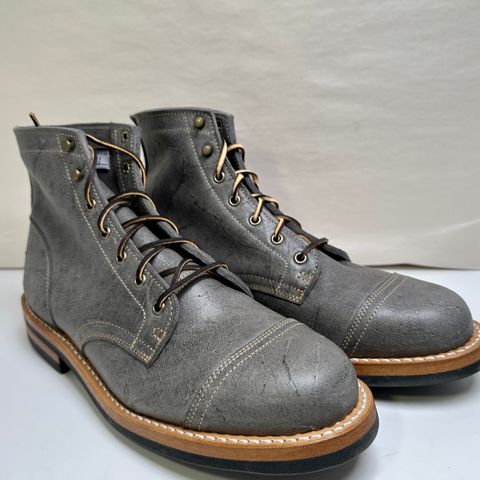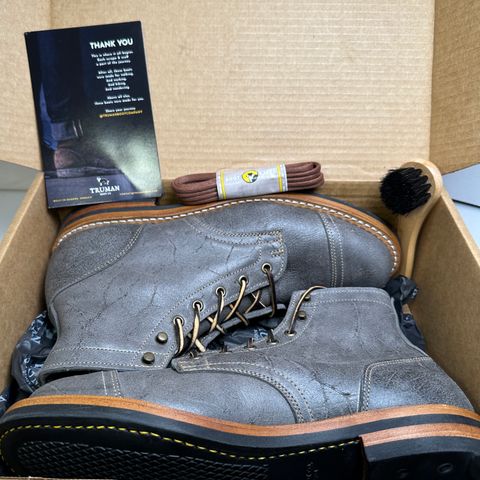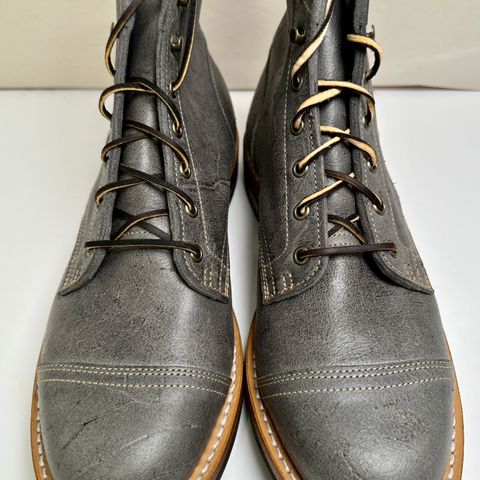C.F. Stead Winter Smoke Waxy Mohawk
Leather Color • exclusive for TrumanAbout
Winter Smoke is a color variant of Waxy Mohawk leather produced exclusively for Truman Boot Company by C.F. Stead, a British tannery based in Leeds, England. The leather features a grayish tone applied to C.F. Stead's Waxy Mohawk flesh-out suede, which showcases the natural vein marks and textures of the hide's reverse side enhanced with a natural wax finish.
About
Winter Smoke is a color variant of Waxy Mohawk leather produced exclusively for Truman Boot Company by C.F. Stead, a British tannery based in Leeds, England. The leather features a grayish tone applied to C.F. Stead's Waxy Mohawk flesh-out suede, which showcases the natural vein marks and textures of the hide's reverse side enhanced with a natural wax finish.
As part of the Waxy Mohawk line, Winter Smoke exhibits the characteristic rugged, outdoor appearance achieved through C.F. Stead's specialized tanning process that highlights the natural imperfections and variations inherent to flesh-out leathers. The color provides a distinctive neutral option within Truman Boot Company's leather offerings.
Leather Characteristics
Winter Smoke shares the technical specifications common to all Waxy Mohawk variants. The leather features a tight fiber structure finished with a natural blend of waxes that enhance the flesh-side textures. This wax impregnation provides water resistance while maintaining the material's breathability and natural character.
The flesh-out construction reveals the hide's reverse side, displaying natural vein marks, scars, and grain variations that make each hide unique. These authentic markings contribute to the leather's rugged aesthetic and distinguish it from more uniform grain-side leathers.
Technical Specifications
Smooth Waxy Mohawk leather measures 1.2-2.2mm in thickness with an average hide size of 12-14 square feet. The material weighs 4.5-5.5 ounces per square foot. During C.F. Stead's 28-day production process involving 15 distinct stages, the suede shrinks 15-30% from its original dimensions.
The manufacturing process includes rehydration, cleaning, de-hydration, sorting, flattening, planing, dyeing, drying, and stretching. Final color adjustment occurs through a light-based machine to ensure consistency within the natural variation expected from flesh-out leather.
Care and Maintenance
Waxy Mohawk leather requires periodic maintenance to preserve its water-resistant properties. Recommended care includes using carnauba wax-based leather creams or boot wax applied with a horse hair brush using swift, intentional movements. For water resistance, leather protector should be applied to both seams and the upper leather surface.
Spot cleaning with a damp cloth addresses minor soiling, while waterproofing spray or wax balm maintains the protective finish. Conditioning frequency depends on climate and usage patterns, with protection recommended one to two times annually. Direct sunlight exposure should be limited to prevent fading of the dyed surface.
Historical Context
C.F. Stead established operations in 1904 when founder Charles Frederick Stead incorporated the company after apprenticing at Thomas Wright & Co. Ltd. The tannery occupied the Sheepscar Tannery site, which included buildings dating to 1823. The company received the Queen's Award for Export in the late 1990s and currently employs 75 people while generating €14 million in annual revenue as of 2023.
The tannery's location in the Meanwood Valley of Leeds placed it among numerous historical tanneries that relied on the soft water of Meanwood Beck for their operations. This heritage district supported England's leather industry for centuries before modern consolidation.
References
"Smooth Waxy Mohawk". Charles F Stead and Co Ltd. Retrieved October 1, 2025.
"Heritage". Charles F Stead and Co Ltd. Retrieved October 1, 2025.
"C.F. Stead Waxy Mohawk Leather". The Tannery Row. Retrieved October 1, 2025.
"A visit to the C.F. Stead tannery in the UK". FashionNetwork. Retrieved October 1, 2025.
